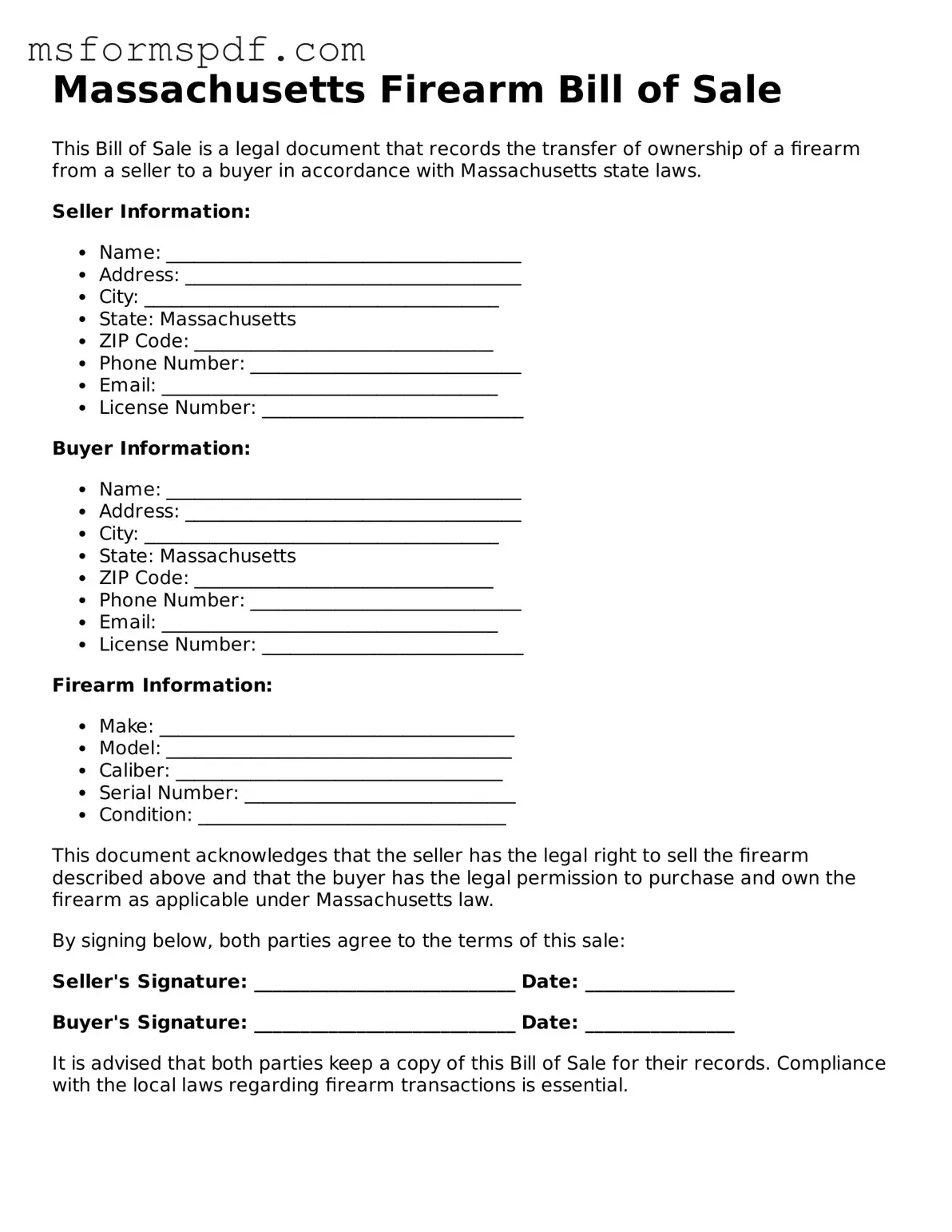Blank Massachusetts Firearm Bill of Sale Document
The Massachusetts Firearm Bill of Sale form is a legal document used to record the sale or transfer of firearms between individuals. This form serves as proof of the transaction and includes essential details such as the buyer's and seller's information, firearm description, and sale date. Understanding the requirements and implications of this form is crucial for both parties involved in the transaction.
Launch Editor Now

Blank Massachusetts Firearm Bill of Sale Document
Launch Editor Now

Launch Editor Now
or
➤ Firearm Bill of Sale PDF Form
Just a moment — finish the form
Fill out Firearm Bill of Sale digitally — no scanning, no printing.